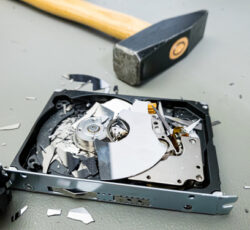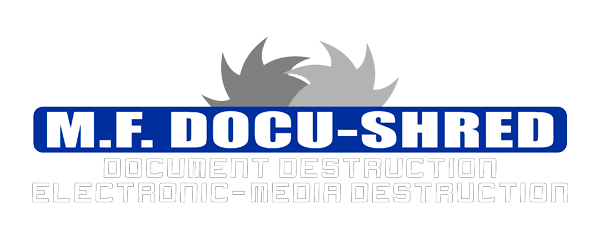 In today’s digital age, data security is a paramount concern for individuals and businesses alike. When it comes time to dispose of old computers or hard drives, many people believe that physically destroying them is enough to protect their data from falling into the wrong hands. However, is destroying hard drives really sufficient to ensure the security of sensitive information? In this blog post, we will explore the effectiveness of destroying hard drives in protecting data and discuss additional measures that should be taken to ensure comprehensive data security.
In today’s digital age, data security is a paramount concern for individuals and businesses alike. When it comes time to dispose of old computers or hard drives, many people believe that physically destroying them is enough to protect their data from falling into the wrong hands. However, is destroying hard drives really sufficient to ensure the security of sensitive information? In this blog post, we will explore the effectiveness of destroying hard drives in protecting data and discuss additional measures that should be taken to ensure comprehensive data security.
1. The Limitations of Physical Destruction
Physically destroying a hard drive can indeed make it challenging for someone to extract data directly from the drive itself. Techniques such as drilling holes, crushing, or shredding the drive can render it inoperable and make data retrieval extremely difficult, if not impossible. This can be particularly useful if you want to prevent unauthorized access to your data.
However, it’s essential to recognize that physical destruction of a hard drive may not completely eradicate all traces of data. Sophisticated recovery techniques, although expensive and time-consuming, can potentially reconstruct data from partially damaged drives. Therefore, relying solely on physical destruction as a data protection measure may not be sufficient in certain situations, especially when dealing with highly sensitive or confidential information.
2. Data Remanence and Secure Data Erasure
Data remanence refers to residual information that remains on a storage device even after attempts have been made to remove it. This residual data can potentially be recovered using specialized techniques. Therefore, if you want to ensure the complete eradication of your data, you need to go beyond physical destruction and consider implementing secure data erasure methods.
Secure data erasure involves using software or specialized tools to overwrite the entire hard drive with random patterns of data. This process effectively destroys the original data, making it extremely challenging or virtually impossible to recover. It provides a more comprehensive and reliable approach to data protection compared to relying solely on physical destruction.
3. Professional Data Destruction Services
For businesses or individuals with significant data security concerns, hiring professional data destruction services can offer an extra layer of assurance. These services specialize in securely erasing data from hard drives and can provide certified proof of data destruction for compliance and auditing purposes.
Professional data destruction services often use complex software algorithms and physical methods to ensure the complete elimination of data. They adhere to strict protocols and industry standards to guarantee the highest level of data security. Engaging such services can provide peace of mind regarding the protection of sensitive information and may be especially beneficial for organizations that handle large amounts of confidential data.
4. Encryption and Data Backup
While destroying hard drives and secure data erasure are critical for protecting stored data, it is equally important to consider data security measures during the active use of digital devices. Encryption is a powerful tool that can help safeguard data from unauthorized access. By encrypting your data, you add an extra layer of protection, making it unreadable without the appropriate decryption key.
Additionally, regular backups of your important data play a crucial role in data security. By having multiple copies of your data stored securely in different locations, you mitigate the risk of data loss due to hardware failure, theft, or other unforeseen events. Combining encryption with regular data backups ensures that even if a hard drive is physically destroyed, your data remains safe and recoverable.
Conclusion
While physically destroying hard drives can make data retrieval difficult, it may not provide foolproof protection against sophisticated recovery techniques. To ensure comprehensive data security, it is crucial to implement additional measures such as secure data erasure, encryption, and regular data backups. Professional data destruction services can be particularly beneficial for organizations with heightened security needs. By taking a multi-faceted approach to data protection, you can minimize the risk of unauthorized access to sensitive information and protect your valuable data effectively.

